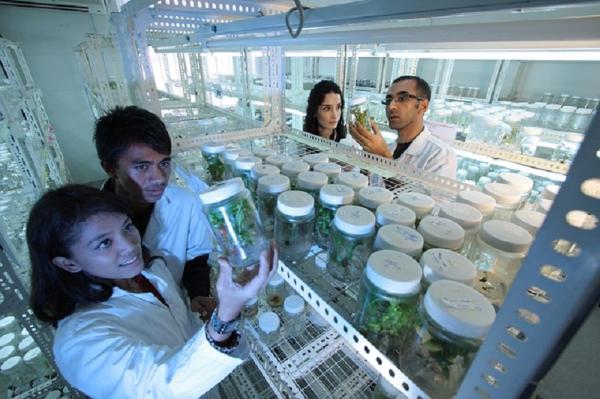Postdoc Awards
Nominations for 2023 are now closed
All staff are encouraged to nominate deserving postdoctoral researchers who have excelled in one of the award categories this academic year
Deadline to nominate: 8 July 2023
Winners will be announced at the Postdoc Showcase 2023 (29 Sep 2023), following National Postdoc Appreciation Week.
The Postdoc Awards aim to recognise the exceptional contributions of postdocs to the University. In particular, they aim to reward those who excel in what they do, who “go the extra-mile” in their research, in their contribution to the life of the University, in their contribution to Public Engagement and in the provision of support for their group, colleagues, School etc.
Set up for the first time in 2018 in the MHLS Faculty only, such awards have been offered in Queen's three Faculties from 2019. The number and categories of awards depend on the number of postdocs in each Faculty and the type of activities they are involved in (see details in the nomination procedure and forms).
All awards are awarded once a year as part of National Postdoc Appreciation Week.
We encourage all University staff to think of postdocs who have performed exceptionally well and to nominate them.
-
Award categories
Research category (for MHLS, EPS and AHSS awards)
This award recognises research and impact activities. It can for example relate to contributions to the progression of projects (creative approaches and problem solving, development of methodologies and tools…), the generation of new knowledge and quality outputs (publication of papers, patents, books, policy reports, code/software, open access datasets…), invited presentations at International conferences and other research dissemination activities to the research and innovation community, obtaining of prizes and similar marks of esteem, as well as the generation of new research ideas and proposals (for external funding etc.). This category also rewards the establishment and management of collaborations and partnerships within academia and with other sectors, contributions to impact and societal benefit (including influence on policy and how public or private bodies function, innovation and commercialisation, entrepreneurship/spin-out companies, development of new applications and products, consultancy…), as well as external engagement with the public, patients or other stakeholders for research purposes (e.g. PPI and research co-creation and consultation).
Note: research dissemination to the public and media is not normally included here, but in the ‘Citizenship and outreach’ category.
Citizenship and outreach category (for MHLS, EPS and AHSS awards)
This category recognises postdoc involvement in QUB business and in the wider research and innovation sector through, for example: dissemination of research to non-specialist audiences (public talks, festivals, events, social media, dissemination via mainstream media or blogs, vlogs…), student recruitment and inspiring young people (engagement with schools, university open days, student recruitment events, widening participation activities…), committee work and representation, the organisation of research events (e.g. conferences, symposia, courses…), contributions to a positive research culture (championing of Equality, Diversity and Inclusion, research integrity, open access, supporting local student symposia and events…), contributions to a positive working environment (organisation of networking and social events…) and other marks of administrative leadership. Contributions to national, international, or field-specific societies, committees, and boards are also relevant to this category, as well as refereeing activities (editing, reviewing papers and proposals etc.).
In the case of AHSS nominees, this award also includes the items corresponding to the ‘Support’ category in MHLS and EPS.
Note that this award rewards public engagement relating to the dissemination of research, not the development of collaborations with external partners such as industrial partners, engagement with innovation and commercialisation as well as PPI embedded within the research project; these activities are rewarded as part of the ‘Research’ category.
Support category (for MHLS and EPS awards only)
This award recognises postdoc involvement in the supervision, training and mentoring of students and fellow staff members (through mentoring programmes, career events, workshops, summer schools), as well as teaching. Contributions to the functioning of the team/group (organisation of team building activities or away days, laboratory rotas, team Health and Safety, regular team meetings or journal clubs…) and coordination of research delivery (e.g. project and collaboration management, budget management) are also included in this category.
Note that there are too few postdoctoral researchers in the AHSS Faculty to justify three awards; the achievements described here are included in the ‘Citizenship and outreach’ category for the AHSS nominees.
- Who can nominate / be nominated?
Who can be nominated?
- Each nomination must be for an individual postdoc
- Nominees should be current postdocs (Research Assistants with a PhD, Research Fellows, Senior Research Fellows, holders of an early-career postdoctoral fellowships, or similar AC1 to AC3 Research staff with a PhD) at Queen's. PhD candidates are not eligible.
- Vice-Chancellor Fellows, Illuminate fellows or holders of fully independent fellowships (as defined by the list of fellowships category C and D receiving institutional support) are not eligible.
- The postdocs nominated should still be employed at Queen’s in the upcoming September (to allow the award to be paid to their salary)
- Postdocs who won one of the postdoc awards in the previous year cannot be nominated in the same category the following year (see previous winners on the website)
Who can nominate?
- Any Queen’s staff member (PI, Postdoc, technical staff, administration staff…) can nominate a maximum of one postdoc per category. Please use separate forms for each award
- PhD candidates can nominate postdocs in the Exceptional support category only
- Postdocs can self-nominate, but only in one category
- If several people wish to nominate the same person, they should ideally write one nomination together (and list all their names as ‘nominators’), for consideration for the judges' time. Judges focus on the content of the nominations, not the number received. Please do not have separate individuals submit the same copied/pasted nomination
- What to include in the nomination?
- The nomination should include an abstract summarising your main reasons for nominating the postdoc and a list of maximum 10 ranked achievements supporting your nomination (to be provided on the appropriate Faculty nomination form)
- The activities which qualify must have been carried out (or be planned) within the current academic year, between September and August (included)
- As a signatory of DORA (the Declaration On Research Assessment), we do not permit the use of narrow metrics like Impact Factors in the nominations, and require that the quality of the achievements listed is provided via the contextualisation of their significance and impact instead
- The achievements supporting the nomination should include specific facts and examples, describing what the contribution of the individual to the initiative was (for example taking inspiration from the CRediT taxonomy), as well as the impact it had; this may be an impact on the progress of their research, on their team or another group of colleagues, on their field, on the development of another individual, on local culture, on society, on the economy etc.
- Ensure the achievements you provide are relevant to the category you have chosen. The categories’ descriptions above indicate the type of eligible achievements. Note that not all the elements listed are required and that the list is not exhaustive. Please do not include facts that would clearly align with another category as they won’t be considered by the panel (for example, do not include papers published for the citizenship category)
- Rank the achievements, starting with the one you consider the most important
- If relevant, you can highlight at the end of your nomination some specific circumstances that you feel the panel should be aware of, for example if the individual you are nominating was on leave for part of the eligible time-frame or works part-time
- How to submit a nomination?
- Download and complete the form corresponding to the Faculty of the nominee, respecting the instructions above
- Send the completed form as a word document (not a pdf as it complicates the anonymisation process for PDC staff) to the PDC (pdc@qub.ac.uk), Subject: MHLS, EPS or AHSS (as relevant) Postdoc awards, before 08/07/2023
- The PDC will acknowledge reception of your nomination. If you do not receive a confirmation within two working days, please get in touch to ensure your email was actually received
Download the MHLS nomination form
- Outcome
- Each nomination will be evaluated by a panel including the Faculty Dean of Research or nominee, the Head of the PDC, a Faculty academic and a member of the Research and Enterprise directorate working with the Faculty
- If a large number of nominations is received within one category, the panel may decide to also award a reasonable number of ‘highly commended’ mentions in addition to selecting a winner. The winner will receive £300 on their September salary (will be taxed as appropriate)
- Winners will be announced at the end of the Postdoc Showcase on 29th September 2023, just after National Postdoc Appreciation Week (18-22 September 2023); place and time of the announcement will be communicated to the nominators and nominees
- The results will be displayed on this website (MHLS nominees, EPS nominees, AHSS nominees) and shared on the PDC Twitter (@QUBpostdoc)




